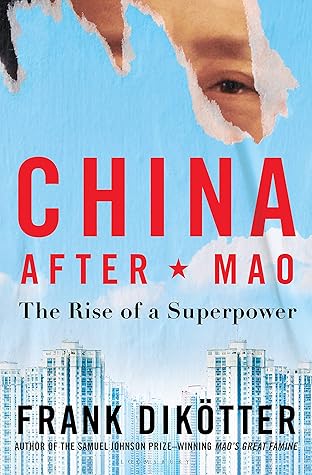The easy options – accept foreign capital, exploit unprotected labour, sell land to raise funds, produce subsidised export goods, list state enterprises abroad, borrow to build and repay tomorrow – were no longer available. The challenge lying ahead for the Communist Party was how to address an entire range of longstanding structural issues of its own making without giving up its monopoly over power and its control over the means of production. It seemed very much like a dead end.
Welcome back. Just a moment while we sign you in to your Goodreads account.


